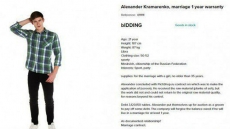WASHINGTON — Most babies should start eating peanut-containing foods well before their first birthday, say guidelines released Thursday that aim to protect high-risk tots and other youngsters, too, from developing the dangerous food allergy.
The new guidelines from the National Institutes of Health mark a shift in dietary advice, based on landmark research that found early exposure dramatically lowers a baby's chances of becoming allergic.
The recommendations spell out exactly how to introduce infants to peanut-based foods and when — for some, as early as 4 to 6 months of age — depending on whether they're at high, moderate or low risk of developing one of the most troublesome food allergies.
"We're on the cusp of hopefully being able to prevent a large number of cases of peanut allergy," said Dr. Matthew Greenhawt of the American College of Allergy, Asthma and Immunology, a member of the NIH-appointed panel that wrote the guidelines.
Babies at high risk — because they have a severe form of the skin rash eczema or egg allergies — need a check-up before any peanut exposure, and might get their first taste in the doctor's office.
For other tots, most parents can start adding peanut-containing foods to the diet much like they already introduced oatmeal or mushed peas.

No, babies don't get whole peanuts or a big glob of peanut butter — those are choking hazards. Instead, the guidelines include options like watered-down peanut butter or easy-to-gum peanut-flavoured "puff" snacks.
"It's an important step forward," said Dr. Anthony Fauci, director of NIH's National Institute of Allergy and Infectious Diseases, which appointed experts to turn the research findings into user-friendly guidelines. "When you do desensitize them from an early age, you have a very positive effect."
Peanut allergy is a growing problem, affecting about 2 per cent of U.S. children who must avoid the wide array of peanut-containing foods or risk severe, even life-threatening, reactions.
For years, pediatricians advised avoiding peanuts until age 3 for children thought to be at risk. But the delay didn't help, and that recommendation was dropped in 2008 — although parent wariness of peanuts persists.
"It's old news, wrong old news, to wait," said Dr. Scott Sicherer, who represented the American Academy of Pediatrics on the guidelines panel.
Thursday's guidelines make that clear, urging parents and doctors to proactively introduce peanut-based foods early.
"Just because your uncle, aunt and sibling have an allergy, that's even more reason to give your baby the food now" — even if they're already older than 6 months, added Sicherer, a pediatric allergist at Mount Sinai Hospital in New York.
In Columbus, Ohio, one doctor told Carrie Stevenson to avoid peanuts after her daughter was diagnosed with egg allergy. Then Stevenson found an allergy specialist who insisted that was the wrong advice — and offered baby Estelle a taste test of peanut butter in his office when she was 7 months old.
"I was really nervous," Stevenson recalled, unsure which doctor to believe. But, "we didn't want her to have any more allergies."

Now 18 months old, Estelle has eaten peanut butter or peanut-flavoured puffs at least three times a week since then and so far seems healthy. Stevenson, pregnant again, plans early exposure for her next child, too.
The guidelines recommend:
—All babies should try other solid foods before peanut-containing ones, to be sure they're developmentally ready.
—High-risk babies should have peanut-containing foods introduced as early as 4 to 6 months after a check-up to tell if they should have the first taste in the doctor's office, or if it's OK to try at home with a parent watching for any reactions.
—Moderate-risk babies have milder eczema, typically treated with over-the-counter creams. They should start peanut-based foods around 6 months, at home.
—Most babies are low-risk, and parents can introduce peanut-based foods along with other solids, usually around 6 months.
—Building tolerance requires making peanut-based foods part of the regular diet, about three times a week.
What's the evidence? First, researchers noticed a tenfold higher rate of peanut allergy among Jewish children in Britain, who aren't fed peanut products during infancy, compared to those in Israel where peanut-based foods are common starting around age 7 months.
Then in 2015, an NIH-funded study of 600 babies put that theory to the test, assigning them either to avoid or regularly eat age-appropriate peanut products. By age 5, only 2 per cent of peanut eaters — and 11 per cent of those at highest risk — had become allergic. Among peanut avoiders, 14 per cent had become allergic, and 35 per cent of those at highest risk.
Whether the dietary change will spur a drop in U.S. peanut allergies depends on how many parents heed the new advice — and if a parent seems skeptical, the guidelines urge doctors to follow up.
TIPS FOR GIVING BABIES PEANUT-BASED FOODS TO PREVENT ALLERGY
New national guidelines say parents can protect their children from becoming allergic to peanuts by feeding them peanut-containing foods as early as 4 to 6 months of age.
What's on the menu for kids that young? Some tips:
GETTING STARTED
—If your baby has severe eczema, a kind of skin rash, or is allergic to eggs, ask your doctor first — but don't put it off. These babies are at high risk for developing peanut allergy and have the recommended earliest exposure, at 4 to 6 months. They may get a test first to be sure it's safe and that they're not already allergic. Some may get a first taste in the doctor's office while some parents may be told it's OK to introduce the foods at home.
—For other babies — those at low risk of allergy, or those at moderate risk because of mild eczema — parents can introduce peanut-based foods at home around 6 months like they introduce other solid foods.
—Once you successfully introduce peanut-based foods, feed them regularly, about three times a week during childhood.
WATCH FOR CHOKING HAZARDS
—Your baby should eat other solid foods first, to be sure he or she is developmentally ready.
—No whole peanuts or big globs of peanut butter on a spoon or in a lump, or chunky peanut butter.
AGE-APPROPRIATE OPTIONS
—Try watered-down peanut butter: Mix 2 teaspoons of smooth peanut butter with 2 to 3 teaspoons of hot water, and let cool.
—Try the peanut-flavoured puff snack Bamba, used in a study of peanut allergy prevention. For babies under 7 months, soften with 4 to 6 teaspoons of water.
—Mix 2 teaspoons of smooth peanut butter with 2 to 3 Tablespoons of a favourite pureed fruit or vegetable.
—Mix 2 teaspoons of peanut flour with about 2 Tablespoons of a favourite pureed fruit or vegetable.
FIRST FEEDING AT HOME
—Don't introduce peanut-based foods, or any other food that might trigger allergy symptoms, when he or she has a cold or other illness that might be mistaken for a reaction.
—Give the first feeding at home, not at day care or a restaurant.
—Offer a small portion of one of the food options, wait 10 minutes and, if there's no reaction, give the rest while still observing for later reactions.
WHAT TO WATCH FOR
—Mild symptoms can include a rash or a few hives around the mouth or face.
—Severe reactions that need immediate medical care can include widespread hives, swelling of the lips, face or tongue, wheezing or difficulty breathing, repetitive coughing, or becoming tired or limp.





